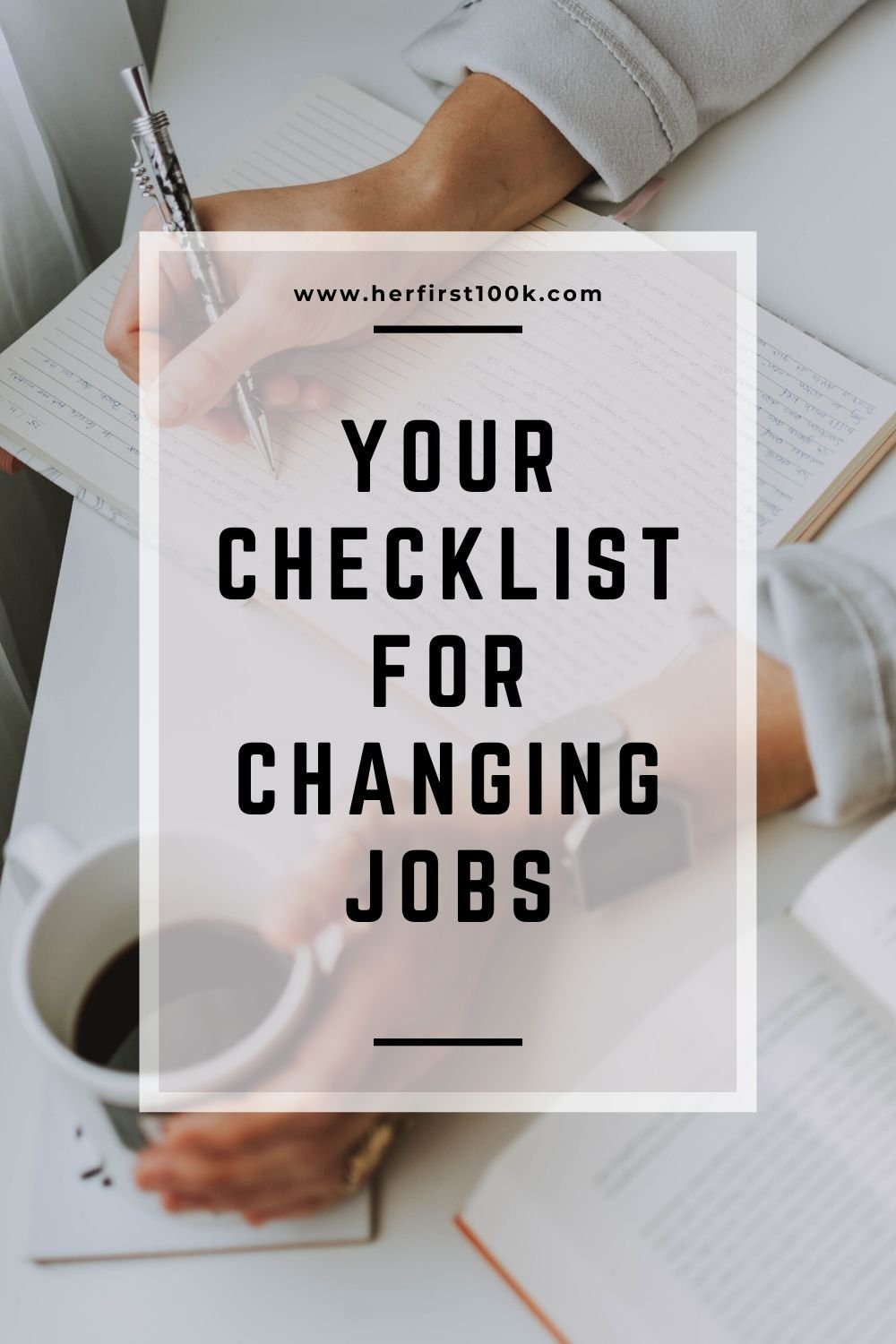The following article may contain affiliate links or sponsored content. This doesn’t cost you anything, and shopping or using our affiliate partners is a way to support our mission. I will never work with a brand or showcase a product that I don’t personally use or believe in.
Things to do before you change jobs
With news of layoffs at major companies dominating the headlines, it’s only natural to be thinking about the job market.
Regardless of whether you’re looking to make a change proactively or out of necessity, being prepared can give you peace of mind while navigating the transition. As you start searching jobs sites and putting together your resume, here are a few things to make sure you have in place before (and immediately after) you transfer jobs.
Pad your emergency funds as much as possible
An emergency fund is your #1 financial priority pretty much all the time, always. It’s the bank account standing between you and some serious financial shit when the unexpected happens –– and when you’re job hunting, you can guarantee you’ll need to expect the unexpected.
An emergency fund should be 3 to 6 months’ worth of expenses tucked away in a High Yield Savings Account. Why? HYSA’s provide almost 50x the interest of your typical bank’s savings account, and the benefit of having that fund out of your account means you’re less likely to dip into it for a new plant or some other non-emergency purpose.
When you’re job hunting, your emergency fund helps cover you in the event of a delay on the start date at your new position or on the occasion your boss finds out you’re job hunting and decides to give you that little push-off the cliff (good riddance, I say!).
If you’ve already got this fund in place, it won’t hurt to pad it a bit while you’re searching. Don’t pause your investments or anything like that, just make sure you’re comfortable if there’s a gap between jobs!
Grab anything you need for your portfolio or resume
Data and stats can help your resume shine and provide concrete details about your past performance while work examples can showcase your ability in writing, design, and many other skills.
But it may be difficult to get these materials after leaving, and while the numbers are fresh now, you may forget later when you no longer have the ability to quickly look up a metric.
Whether you want to cite revenue generated from a marketing campaign or showcase your graphic design work, getting this information now can make your life easier later.
Make sure your website/portfolio/LinkedIn is updated
I cannot tell you how many times I’ve seen amazing candidates for jobs with horribly outdated portfolios, LinkedIn pages, or websites. Worse yet, I’ve seen so many applicants have nothing to show at all.
This isn’t across the board, but if you work in a field where a portfolio or a website will help you land a gig –– make sure the information is up to date with your latest and greatest. If you’re new to the field, creating spec work is totally ok!
Similarly, if you’re applying for a field that doesn’t require a visual portfolio, start collecting statistics and data on your work performance. Write it down and have it ready to go for the interview process, and make sure that your resume and cover letter act as your own form of portfolio.
If you’re struggling with your resume, cover letter, or even knowing how to approach the application or interview process, I’ve got you covered –– check out my resume template and Job Interview Package.
Set up an informational interview
Most job seekers in this new market aren’t just looking for new jobs –– they’re totally shifting industries and roles. A great way to get ahead of the game is to schedule informational interviews with people in the roles you’re most hoping to get. These interviews don’t necessarily have to be at the company you’re hoping to work for, but they can be incredibly helpful if they are.
Informational interviews are not always the easiest to come by, and you do need to make sure you respect your potential interviewer’s time and boundaries if they say no. If you do happen to get an informational interview –– please send a thank you note!
Don’t forget to roll over your 401K
Congrats! You’ve got the job! As you settle into your new office or happily open your new boxes of tech, you might be forgetting a sneaky little detail –– your old 401K.
Here’s a fun fact literally no one else tells you: your old 401K will stay with your old job unless you move it. Not HR, not your old boss –– you. Yes, this is a total pain and there’s a lot of paperwork, but you need to do it or you’ll lose a LOT of money.
When you move your 401k over, you can start your first day at your new gig knowing that your hard-earned retirement is safe and growing!
Changing jobs can feel overwhelming –– we’ve got a ton of great career resources on our products page, which includes both free and paid content to help you crush your interview and negotiate what you’re worth. You got this!



